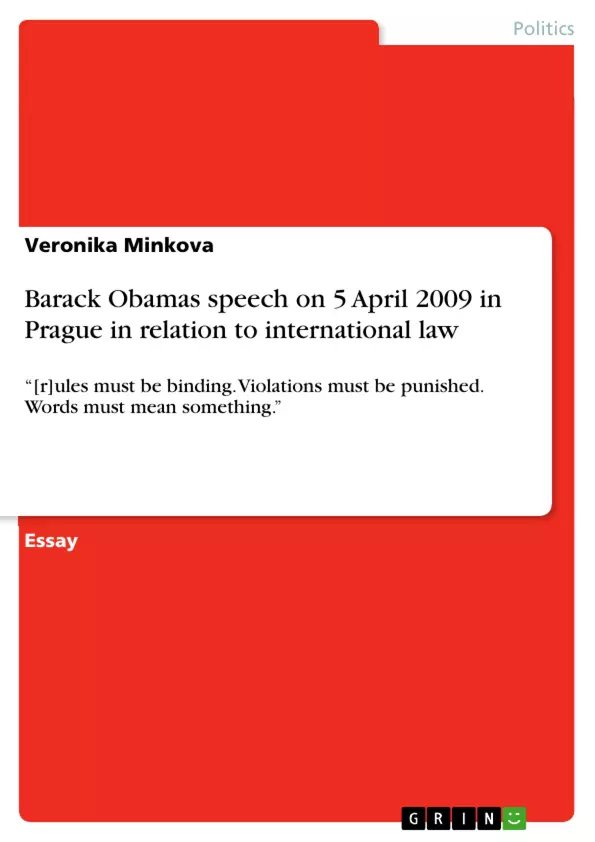A gradual process of change, termed ‘deepening and widening’ of international law, can be observed in response to new challenges to the world order, such as the increased global economic interdependence, demands for human rights and ethnic autonomy, and transboundary environmental damage. States are increasingly entering formal international agreements and transferring a portion of their sovereignty to authoritative international institutions. The proliferation and evolution of international arrangements has raised the question of States’ compliance with international law having in mind the horizontal nature of the international legal system. Law and compliance are conceptually linked as law explicitly aims to provide compliance with legal rules. Theories of compliance draw on both international relations and international law scholarship. Understanding state behaviour in terms of compliance with international law is vital for effectively designing international commitments and improving the efficiency of international institutions. The first section of the present essay outlines the discussion of the nature and function of international law. The common themes of the status of law of international law and its decentralised nature are discussed. The next section addresses theories of compliance with international law. States’ compliance motives are grouped in three categories: ‘international law of power’, ‘international law of community’ and ‘international law of reciprocity’.
Inhaltsverzeichnis (Table of Contents)
- Introduction
- The Nature and Function of International Law
- Compliance with International Law
Zielsetzung und Themenschwerpunkte (Objectives and Key Themes)
This essay critically examines the sentiment expressed by President Obama in his 2009 Prague speech, analyzing the relationship between the theory and practice of international law. It explores the evolving nature of international law in response to global challenges and examines the concept of state compliance in a decentralized international system.
- The nature and function of international law
- Theories of compliance with international law
- The role of coercion and sanctions in international law
- The impact of international law on state behavior
- The challenges and complexities of enforcing international law
Zusammenfassung der Kapitel (Chapter Summaries)
- Introduction: This chapter introduces the topic of the essay and highlights the evolving nature of international law in response to global challenges. It emphasizes the importance of understanding state compliance with international law for the effective design of international commitments and the efficiency of international institutions.
- The Nature and Function of International Law: This chapter explores the status of international law and its decentralised nature, contrasting it with municipal law. It discusses the views of theorists who argue that international law is not true law due to the lack of a centralised enforcement mechanism and the absence of a sovereign power. It also examines alternative views that emphasize the role of consensus and the importance of international cooperation.
- Compliance with International Law: This chapter examines the factors that motivate states to comply with international law, such as reputation, reciprocity, domestic politics, and common interests. It discusses different definitions and approaches to understanding compliance with international law, highlighting the complex relationship between legal norms and state behaviour.
Schlüsselwörter (Keywords)
The essay focuses on the theory and practice of international law, exploring concepts such as state sovereignty, compliance, enforcement, sanctions, coercion, consensus, and the evolving nature of international legal norms in a globalized world.
Frequently Asked Questions
What was the focus of President Obama's 2009 speech in Prague?
The speech addressed global challenges to the world order and the role of international law, particularly concerning nuclear disarmament and international cooperation.
Why do states comply with international law if there is no central authority?
Motivation for compliance is often categorized into power interests, community values, and reciprocity (the mutual benefit of following rules).
How does international law differ from municipal (national) law?
International law is decentralized and horizontal, meaning it relies on the consensus of sovereign states rather than a superior governing body with enforcement powers.
What are the main theories of compliance mentioned in the essay?
The essay discusses theories based on the "international law of power," "international law of community," and "international law of reciprocity."
What is meant by the 'deepening and widening' of international law?
It refers to the gradual process where international law covers more areas (widening) and creates more binding, complex obligations for states (deepening) in response to globalization.
- Quote paper
- Veronika Minkova (Author), 2011, Barack Obamas speech on 5 April 2009 in Prague in relation to international law, Munich, GRIN Verlag, https://www.grin.com/document/179305



